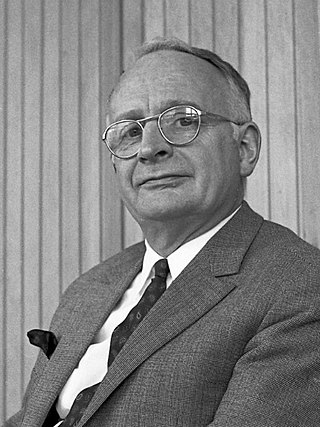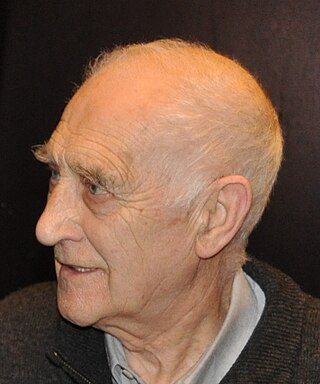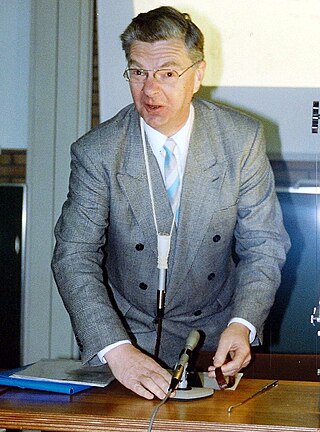Related Research Articles
Andrey Petrovich Yershov was a Soviet computer scientist, notable as a pioneer in systems programming and programming language research.

Stephen Richard "Steve" Bourne is an English computer scientist based in the United States for most of his career. He is well known as the author of the Bourne shell (sh), which is the foundation for the standard command-line interfaces to Unix.

Adriaan "Aad" van Wijngaarden was a Dutch mathematician and computer scientist. Trained as a mechanical engineer, Van Wijngaarden emphasized and promoted the mathematical aspects of computing, first in numerical analysis, then in programming languages and finally in design principles of such languages.

Nobuo Yoneda was a Japanese mathematician and computer scientist.
David A. Turner was a British computer scientist. He is best known for designing and implementing three programming languages, including the first for functional programming based on lazy evaluation, combinator graph reduction, and polymorphic types: SASL (1972), Kent Recursive Calculator (KRC) (1981), and the commercially supported Miranda (1985). Miranda had a strong influence on the later Haskell.
John Edward Lancelot Peck was the first permanent Head of Department of Computer Science at the University of British Columbia (UBC). He remained the Head of Department from 1969 to 1977.
Barry James Mailloux obtained his Master of Science (M.Sc.) in numerical analysis in 1963. From 1966, he studied at Amsterdam's Mathematisch Centrum under Adriaan van Wijngaarden, earning a Doctor of Philosophy (Ph.D.) in 1968.

Cornelis Hermanus Antonius "Kees" Koster was a Dutch computer scientist who was a professor in the Department of Informatics at the Radboud University Nijmegen in the Netherlands.
Richard Simpson Bird was an English computer scientist.
Lambert Guillaume Louis Théodore Meertens or L.G.L.T. Meertens is a Dutch computer scientist and professor. As of 2020, he is a researcher at the Kestrel Institute, a nonprofit computer science research center in Palo Alto's Stanford Research Park.
Thomas Stephen Edward Maibaum Fellow of the Royal Society of Arts (FRSA) is a computer scientist.

Willem Louis van der Poel is a Dutch computer scientist, who is known for designing one of the first computers to be designed in the Netherlands, the Zeer Eenvoudige Binaire Reken Automaat (ZEBRA), translated as Very Simple Binary Automatic Calculator.
Charles Carroll Morgan is an American computer scientist who moved to Australia in his early teens. He completed his education there, including a Doctor of Philosophy (Ph.D.) degree from the University of Sydney, and then moved to the United Kingdom in the early 1980s. In 2000, he returned to Australia.

Jeremy Gibbons is a computer scientist and professor of computing at the University of Oxford. He serves as Deputy Director of the Software Engineering Programme in the Department of Computer Science, Governing Body Fellow at Kellogg College and Pro-Proctor of the University of Oxford.
Eiiti Wada is a computer scientist and emeritus professor at the University of Tokyo and the Research Director of Internet Initiative Japan (IIJ), a computer network technology company. He is one of the creators of the Happy Hacking Keyboard.
IFIP Working Group 2.1 on Algorithmic Languages and Calculi is a working group of the International Federation for Information Processing (IFIP).
Charles Abraham Katz was an American mathematician and computer scientist known for his contributions to early compiler development in the 1950s.

Michel Sintzoff was a Belgian mathematician and computer scientist.
Joseph Henry Wegstein was an American computer scientist.
Yanhong Annie Liu is a computer scientist and professor of computer science at Stony Brook University where she works on new programming languages, software systems, algorithms, program design, optimizing, analysis, and transformations, intelligent systems, distributed computing systems, and computer security.
References
- ↑ van Wijngaarden, Adriaan; Mailloux, Barry James; Peck, John Edward Lancelot; Koster, Cornelis Hermanus Antonius; Sintzoff, Michel; Lindsey, Charles Hodgson; Meertens, Lambert Guillaume Louis Théodore; Fisker, Richard G., eds. (1976). Revised Report on the Algorithmic Language ALGOL 68 (PDF). Springer-Verlag. ISBN 978-0-387-07592-1. OCLC 1991170. Archived (PDF) from the original on 19 April 2019. Retrieved 11 May 2019.
- ↑ Marcotty, Michael; Ledgard, Henry F. (1987). The world of programming languages. Springer-Verlag. p. 324. ISBN 978-0-387-96440-9.
- ↑ Lindsey, Charles H.; van der Meulen, S. G. (1977). An Informal Introduction to Algol 68. Amsterdam; Oxford: North-Holland Publishing. ISBN 0-7204-0726-5.
- ↑ Jeuring, Johan; Meertens, Lambert; Guttmann, Walter (17 August 2016). "Profile of IFIP Working Group 2.1". Foswiki. Retrieved 13 October 2020.
- ↑ Swierstra, Doaitse; Gibbons, Jeremy; Meertens, Lambert (2 March 2011). "ScopeEtc: IFIP21: Foswiki". Foswiki. Retrieved 13 October 2020.
- 1 2 "Vale Charles H Lindsey". IFIP News. 27 March 2023. Retrieved 30 December 2023.
- ↑ Lindsey, Gillian (Summer 2023). "Obituary : Charles H. Lindsey". Resurrection (102). Computer Conservation Society. ISSN 0958-7403 . Retrieved 30 December 2023.